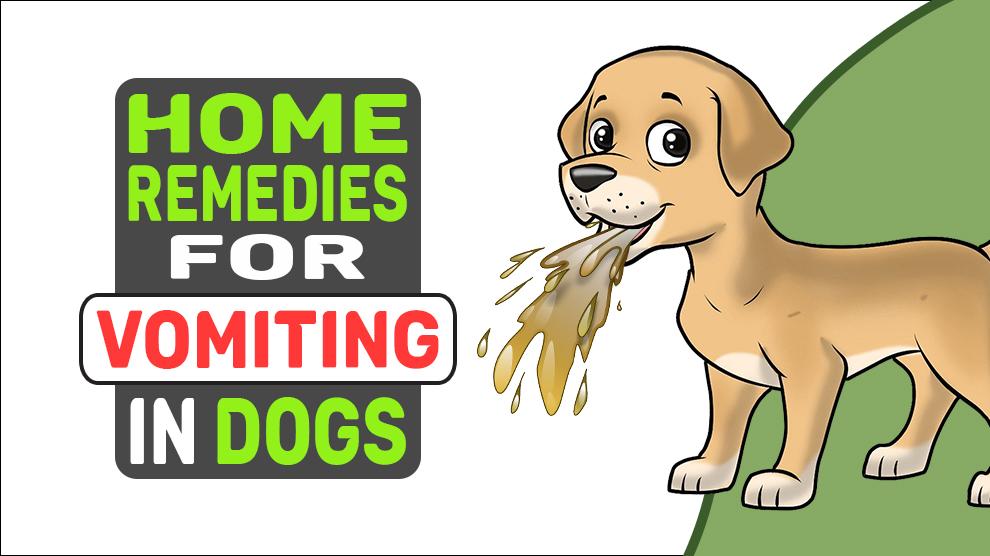Possible Diseases For Vomiting
- Gallbladder Agenesis - Read More -> Gallbladder Agenesis In Dogs
- Inflammatory Bowel Disease - Read More -> Inflammatory Bowel Disease In Dogs
- Bilious Vomiting Syndrome - Read More -> Bilious Vomiting Syndrome In Dogs - Symptoms & Treatment
- Intestinal Malabsorption - Read More -> Intestinal Malabsorption In Dogs
- Gastrointestinal Campylobacteriosis - Read More -> Gastrointestinal Campylobacteriosis In Dogs
- Intussusception - Read More -> Intussusception In Dogs
- Onion Poisoning - Read More -> Onion Poisoning In Dogs
Home Remedies For Vomiting
1. Try Bland Diet:
For healthy adult dogs: Canine experts recommend fasting for 12 - 24 hours.
Once that period is over, provide your dog a bland diet with three parts plain cooked rice with one part unseasoned, boneless, and skinless, boiled chicken breast.
Avoid feeding:
- Spicy foods, Greasy, Fatty, and Fried foods, and Allergens (gluten, soy, and dairy).
- Colorings, preservatives, additives, and flavors from your pet’s diet.
2. Hypoallergenic Diets:
‘Diagnostic allergy testing’ is the quickest and best way to determine which foods your dog may or may not be allergic to.
- Avoid Dairy, Beef, and Wheat.
- Novel protein sources are used in this diet (bison, elk, duck meat).
- Carbohydrate sources include canned pumpkin, sweet potatoes, potatoes, yams, peas, etc.
- Hydrolyzed protein diets - Diets containing protein source that is hydrolyzed to small components - amino acids and peptides.
3. For Dogs That Vomit In The Morning:
Step 1: Provide a mini-meal before bedtime. This increases GI motility.
Step 2: Split the dog’s daily food quota into several small meals - to stimulate the continuous motility of the stomach.
If these steps do not work out means, go to the next step.
Step 3: Consult your vet and give a Proton-pump inhibitor (omeprazole, esomeprazole, pantoprazole, etc) or H2RAs such as (ranitidine or famotidine) that acts as acid-reducers.
Above three steps did not yield any results mean, go to step 4.
Step 4: Check with your vet about gastroprotection (protects gastric mucosa from bile irritation).
Sucralfate (Carafate) is the most prescribed mucosal protectant.
When the above four steps don’t work out, go to Step 5.
Step 5: Try a “prokinetic” agent - Metoclopramide (Reglan), Macrolide antibiotics, Cisapride, Ranitidine, Nizatidine, or Lidocaine.
4. Herbs For Vomiting:
There are few herbs that calm an aggravated stomach. Herbs having anti-spasmodic properties which relieve nausea are Chamomile, Catnip, Ginger, and Fennel.
Lavender oil: Take a few drops of lavender oil on a cotton ball and place it in the area where your dog usually takes a rest so that it can breathe the scent.

















